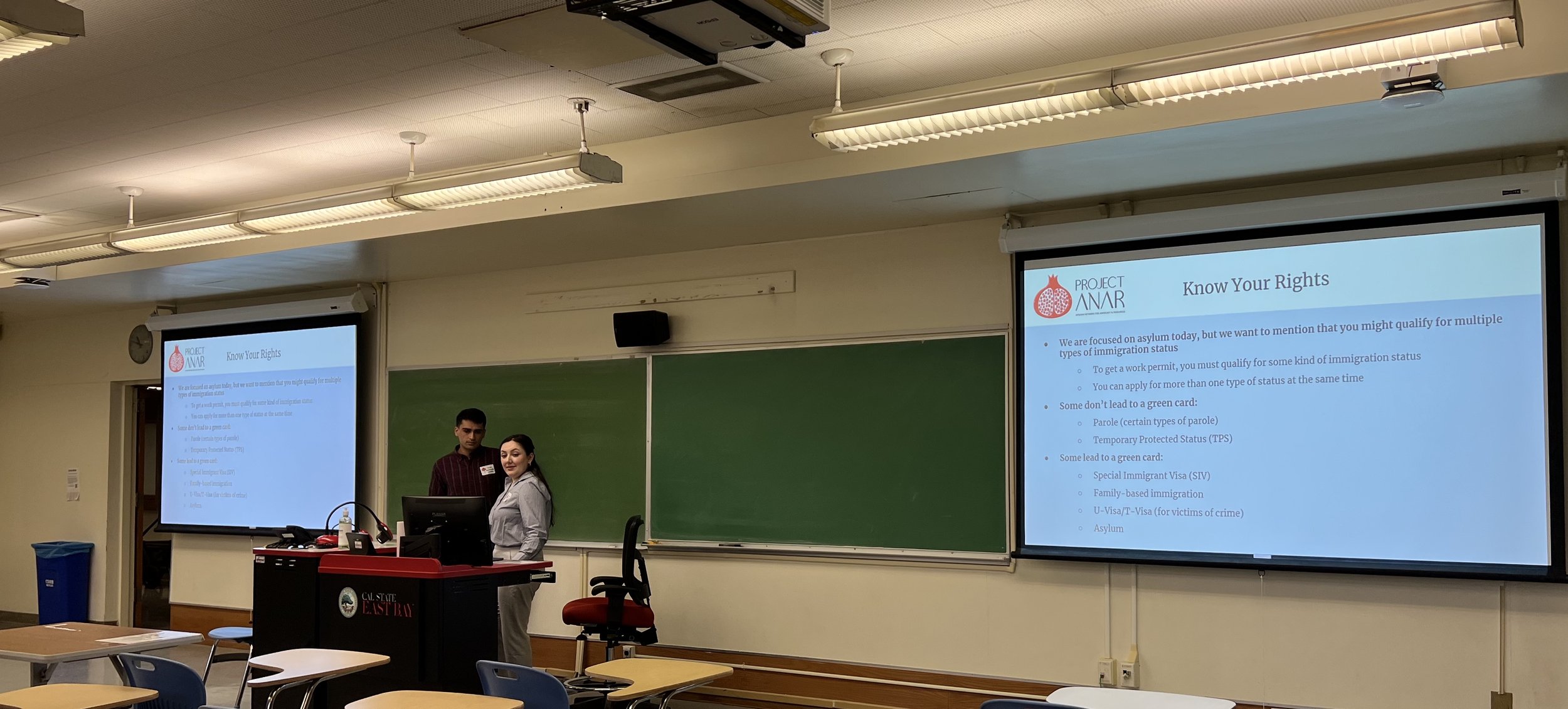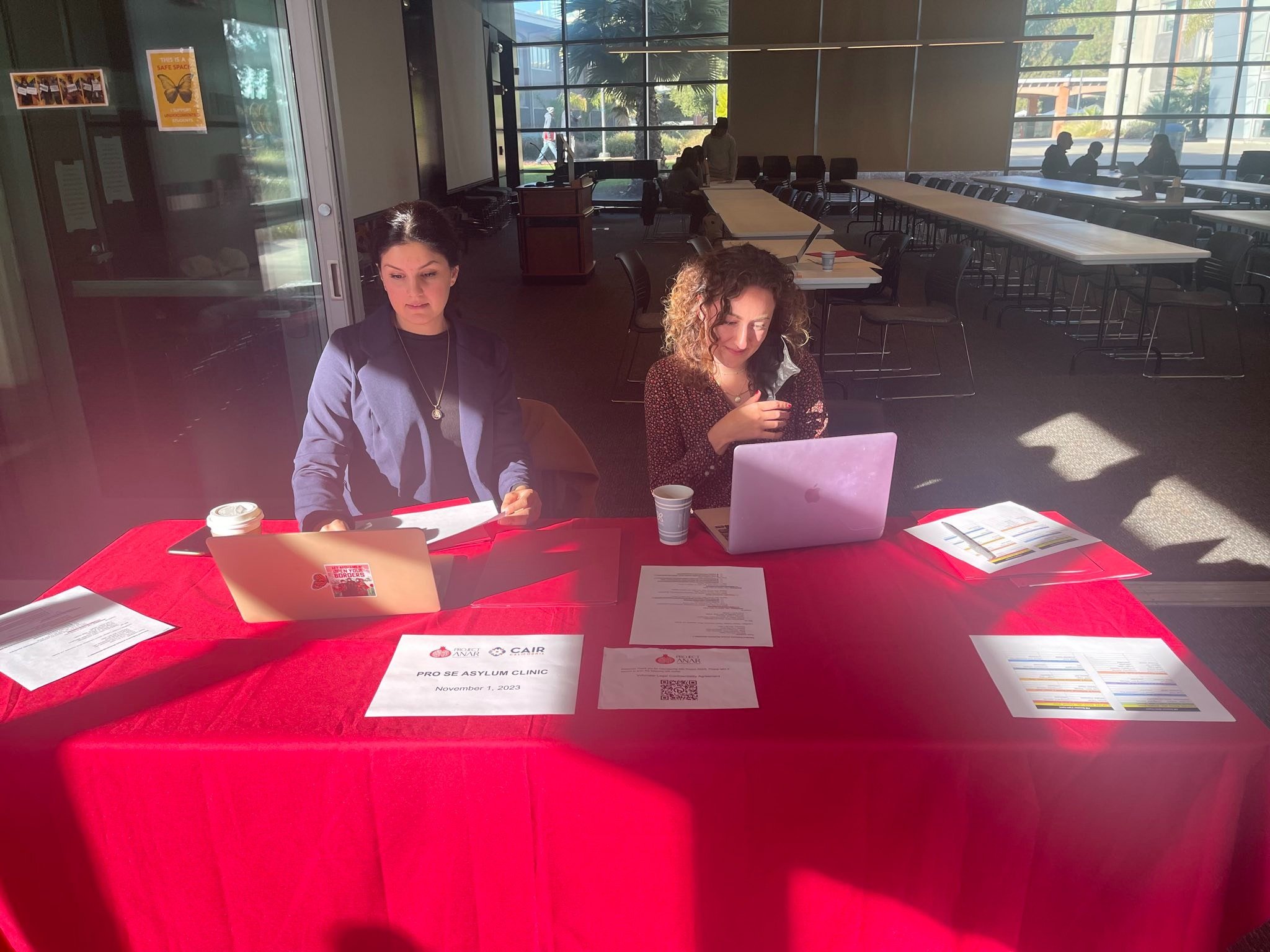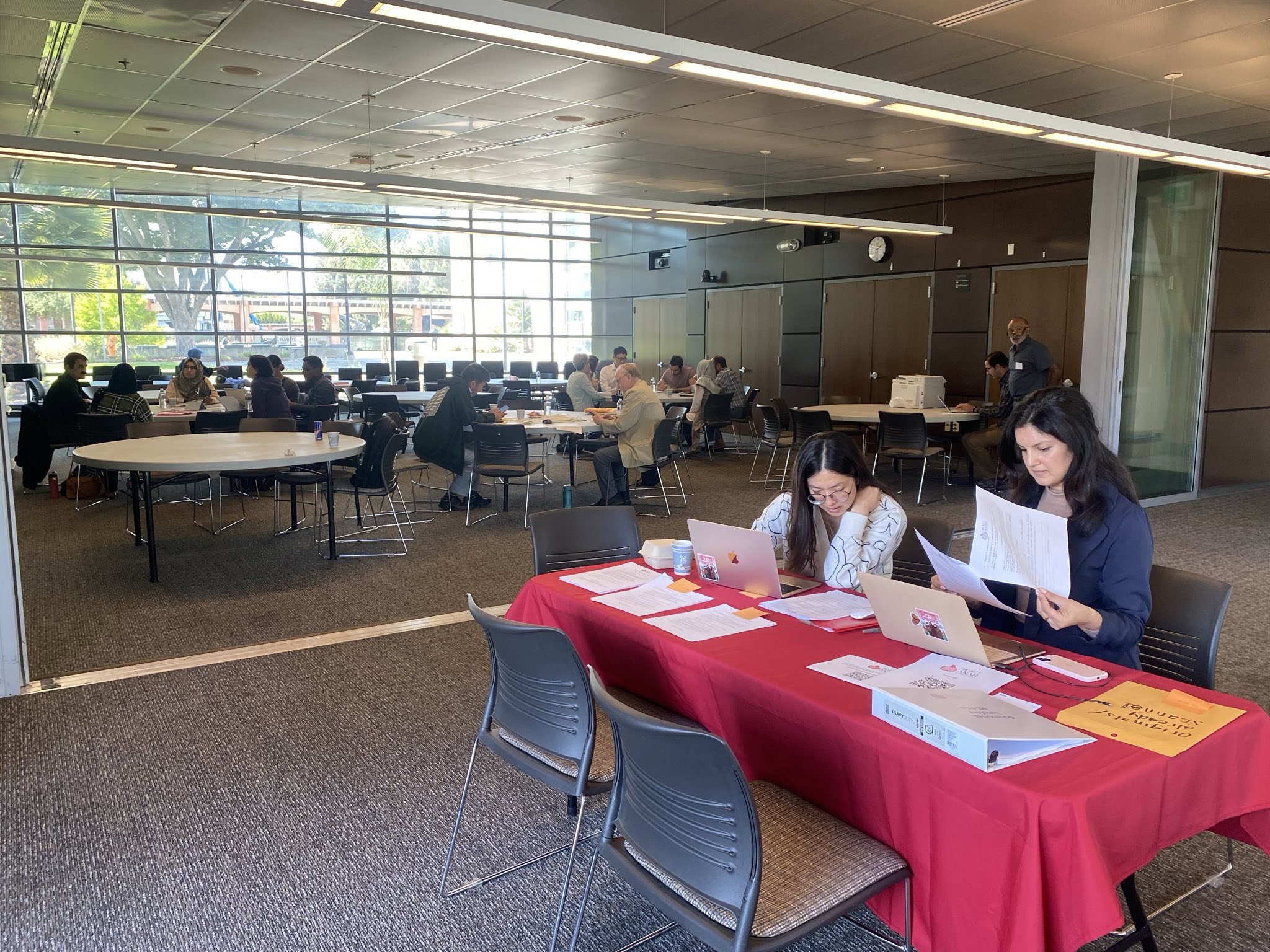Launching an Asylum Workshop Series for Afghans in Removal Proceedings
Written by Steffi Colao, Legal Fellow at Project ANAR
Since June, Project ANAR has co-organized five defensive pro se asylum clinics across California and the D.C. area, preparing asylum applications for over 50 people in removal proceedings. As Afghans have been left with few accessible pathways to refuge, we have found that our community needs ways to assist newly arrived Afghans in removal proceedings. ANAR has been working to meet the needs of these individuals, as well as those in our community who are supporting them, including through multilingual resource development, webinars, and detained removal defense. Our asylum workshop series has been an essential part of this work. We were one of the first organizations to launch a program of defensive asylum workshops earlier this year. Since then, we have consulted with organizations around the country seeking to replicate our model of one-day workshops in which our attorneys, volunteers, and interpreters help participants complete the I-589 application for asylum and receive a Know Your Rights training.
Through this work, we strive to eliminate the barriers placed on our community-members striving to obtain permanent legal status and family reunification, including the financial burden of accessing legal representation. These defensive asylum clinics serve Afghans who are eligible for asylum but because of massive bureaucratic delays, restrictive criteria, or urgency to leave Afghanistan, had no choice but to arrive in the U.S. to seek asylum. ‘Defensive’ asylum seekers are in the defensive position largely because of the failure of the US evacuation efforts and slow processing times. The exclusive focus on affirmative asylum for clinics has overlooked many members of our community, and Project ANAR is proud to have paved the way for large-scale removal defense work.
The workshop series has been a grassroots, collaborative legal services effort. Our pilot workshop was spearheaded through a partnership between ANAR and CAIR San Francisco Bay Area, and we have partnered with Human Rights First for two workshops on the East Coast. Our model is inspired by Pangea Legal Services’ empowerment-focused pro se removal defense workshop series. The clinics were designed to serve our Afghan community, with multilingual know your rights resources and materials, and we were also able to work with our partners to assist Somali, Colombian, and Nicaraguan asylum seekers, all of whom are in the deportation system after having come to the U.S. seeking safety.
This assistance is critical because most people who come to the U.S. seeking protections must file their I-589, application for asylum and withholding of removal, within one year of arriving in the United States, and because it is the first step for most people toward becoming eligible for work authorization, and finding a sense of stability living in this country. 150 days after filing their I-589, individuals become eligible for work authorization. Project ANAR works to assist our asylum workshop participants with applying for work authorization when they become eligible. We also work to connect people to the other resources they need, and to place their cases with an attorney for full-scope representation, either by making a referral or by placing the case within our volunteer network. When this is not possible, we help prepare community members for attending their initial hearings without an attorney.
Even though defensive asylum can be more complicated than affirmative asylum, and includes a high-stakes, adversarial court process, we have built upon our large-scale, volunteer-driven legal services model to meet this important need. While everyone is up against a 1-year asylum filing deadline, most agencies are incredibly backlogged given systemic issues surrounding the immigration court system. Furthermore, many organizations that serve Afghans do not serve those who are in removal proceedings due to funding restrictions. Project ANAR works to fill in these gaps in services, that exist because of systemic issues stemming from anti-asylum policies. We strive to complement the work being done by other legal services providers and meet this important need for those who will otherwise have no legal assistance throughout this process. Our model is also one focused on empowerment, recognizing the power our community members have to be leaders in their own immigration process. After starting as an emergency response effort to assist Afghans seeking refuge and family reunification, our organization has been able to shift to meet this new and growing, urgent, and directly related need. Please consider supporting our work as a volunteer or by donating.




